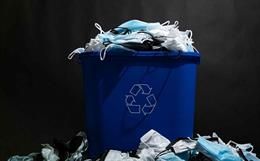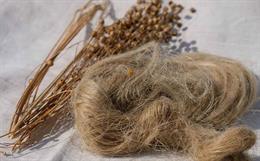Textiles made from ecologically friendly materials and processes are known as ecological protection textiles or oekotech textiles. This includes textiles produced from recycled materials as well as textiles made from natural fibres such as cotton, wool, and silk. Oekotech textiles are manufactured with minimal waste and pollution using sustainable materials. Additionally, they are often more durable, healthier, and comfortable compared to traditional textiles.
Oekotech textiles are growing in popularity as more people become conscious of the environmental impact of their clothing choices. Oekotech fabrics are now widely available and vary from carpets and upholstery to apparel and bedding. Unlike conventional cotton, organic cotton is produced without the use of artificial fertilisers or pesticides, making it a more environmentally friendly option. Bamboo, in comparison to cotton, grows more quickly and requires less water and chemicals. Hemp is another durable and sustainable fibre. Recycled polyester, made from plastic bottles and other waste, reduces pollution.
Fibres Used in Oekotech Textiles
Organic Cotton: A popular fibre, organic cotton is produced without harmful, artificial chemicals. It is grown using natural fertilisers and is not genetically modified. Its carbon footprint is smaller than that of conventional cotton, as it uses less fuel and energy and emits fewer greenhouse gases.
Bamboo: Bamboo is often grown with minimal chemical inputs and has antibacterial and biodegradable properties.
Hemp: Hemp, a renewable resource, grows without fertilisers or pesticides and does not deplete soil nutrients.
Organic Wool: Organic wool is wool that has not been treated with chemicals, such as pesticides.
Lyocell: Derived from natural cellulose wood pulp, lyocell is fully biodegradable and is manufactured using a closed-loop process with fewer harmful chemicals.
Soybean Fibre: It is a by-product of processing soybeans for food.
Recycled Cotton: Environmentally friendly, it is made from reclaimed cotton that would otherwise be discarded during the spinning, knitting, or garment cutting processes.
Recycled Polyester: It is a sustainable fabric made by recycling plastic waste, typically plastic bottles, into fibres that are then used to produce a wide range of textiles and garments.
Lenpur: Lenpur is an eco-friendly fibre made from the pulp of sustainable white fir trees.
Ingeo Fibre: Ingeo fibre is produced by fermenting sugars from corn plants.
The widespread use of harmful textiles and other products is currently inflicting severe damage on the environment. The earth endures significant harm during various stages of textile processing. In this context, oekotech, due to the use of less harmful fibres, presents a substantial relief.
Oekotech Textiles Market Size
The global oekotech textiles market is predicted to grow at a Compound Annual Growth Rate (CAGR) of 3.5 per cent over the next decade, reaching a projected value of $16.5 billion by 2030. This market segment encompasses textiles and apparel that have been certified for meeting specific environmental and social standards. The International Oeko-Tex Association, an independent body, establishes criteria for textile production to ensure products are free from harmful substances and produced in an environmentally and socially responsible manner.
Regarding market size and CAGR, it is essential to note that the oekotech textiles market is a niche within the broader textile industry. While precise statistics for the oekotech textiles market’s size and growth rate may not be readily available, it is understood that this market is part of the larger sustainable textiles market. The increasing demand for eco-friendly and socially responsible products among consumers and the implementation of regulations promoting sustainable practices in the textile sector are key drivers behind the growth of sustainable textiles.
Oekotech Textiles Market Segmentation
The global oekotech textiles market is segmented into woven fabric, nonwoven fabric, knitted fabric, and others.
Woven Fabric: Within the global oekotech textiles market, woven fabric accounts for the largest market share. This dominance is attributed to the preference of end-users for woven fabrics, which offer superior protection compared to knitted and nonwoven fabrics.
Nonwoven Fabric: Nonwoven fabric is a type of flat fabric produced from tangles of fibres, either in an ordered or random pattern. It is made using continuous filaments such as viscose rayon, polyester, and nylon, or short fibres that, although not suitable for fine yarns, can create economically viable nonwovens with satisfactory sewing properties.
Knitted Fabric: In the global oekotech textiles market, knitted fabric primarily finds application in textiles and garments. Typically used for creating sweaters, scarves, gloves, and hats, the demand for knitted fabrics is expected to increase due to a growing awareness of health benefits, such as a reduced risk of allergies, associated with wool-reinforced clothing. Consequently, this category has seen significant growth due to its broad range of applications.
Main Advantages of Oekotech Textiles
Consumer demand for eco-friendly textiles is on the rise, driven by several factors, including increased public awareness of the textile industry’s environmental impact, the expansion of eco-friendly material options, and the growing popularity of sustainable fashion.
Oekotech fabrics are not only better for the environment but are also often more comfortable, hygienic, and durable than conventional textiles. They are made without harmful chemicals and consist of natural fibres that are breathable and moisture-wicking.
Environmentally Friendly: Oekotech textiles are produced with minimal pollution and waste using sustainable materials. This practice can reduce carbon footprint and contribute to environmental protection.
Comfortable: Oekotech fabrics, often made from natural fibres that are moisture-wicking and breathable, are more comfortable to wear. They also have a lower risk of causing allergic reactions.
Healthy: Oekotech textiles are processed without the use of harmful chemicals, allowing people to opt for them with confidence.
Durable: Oekotech fabrics are typically made from strong, long-lasting fibres.
Affordable: Oekotech fabrics are becoming more affordable, making them accessible to everyone.
As consumers become more aware of the environmental impact of their clothing choices, the demand for Oekotech textiles is expected to continue increasing in the coming years.
Important Market Players in Oekotech Textiles
The market for Oekotech textiles is extremely competitive, with multiple large manufacturers fighting for market share. Ahlstrom-Munksjo, Asahi Kasei, Dupont, Hyosung Corporation, Kimberly-Clark, 3M, Ruyi, Shanghai Textile, Shandong Weiqiao Pioneering, SKAP, Sunshine, and Toray are a few of the major companies in this sector.
Known for its eco-friendly textile solutions, Dupont is a prominent player in the Oekotech textiles market. The company’s primary goal is to manufacture sustainable fabrics using recycled fibres and bio-based components. Greater consumer demand for eco-friendly fabrics and greater awareness of sustainability have led to Dupont’s consistent market growth.
Ahlstrom-Munksjo, another important participant, is a world authority in creative and sustainable fibre-based solutions. The company sells a variety of Oekotech textiles, such as filtration media and nonwoven fabrics. Ahlstrom-Munksjo's market has grown significantly in the last several years due to the rising demand for nonwoven textiles in a variety of industries, including automotive, healthcare, and hygiene products.
Oekotech textiles are among the wide range of goods that 3M is renowned for. The company sells a variety of high-performance textiles, such as sticky tapes, reflective materials, and fabrics that withstand flames. Construction, automotive, and personal protective equipment industries have been the main drivers of 3M’s consistent growth in the Oekotech textile business. The company is anticipated to continue growing in the Oekotech textiles industry due to its strong market position, wide range of products, and innovation-focused approach.
Future of Oekotech Textiles
In the coming years, the market for Oekotech Textiles is expected to see significant growth due to rising consumer demand for environmentally friendly and sustainable fabrics. Oekotech textiles, made from organic fibres and recyclable materials, offer an eco-friendly alternative. This market is further propelled by strict regulations on waste management and textile manufacturing, along with consumers’ growing awareness of the negative impacts traditional textiles have on the environment and human health. With continuous technological advancements and innovative production methods, the Oekotech textiles market is poised for substantial expansion.
Significant growth in the Oekotech textiles market is anticipated across North America, Asia-Pacific (APAC), and Europe. North America is expected to dominate the market due to the region’s increasing focus on eco-friendly and sustainable practices. Europe is predicted to capture a significant market share, driven by its stringent environmental regulations. APAC, with China at the forefront, is expected to witness considerable growth due to the expanding textile industry and rising consumer awareness in the region. Based on current trends, North America is projected to hold about 40 per cent of the market share, followed by Europe at 30 per cent and APAC at 25 per cent.
- Akramovich, A. (2022). Importance of the OEKO-TEX 100 Standard for the Textile Industry. Texas Journal of Engineering and Technology, 15, 265-270.
- Classification Technical Textiles - NTTM (texmin.gov.in)
- OEKO-TEX® - Tailor-made solutions for the textile and leather industry
- Oekotech Textiles Industry News | Technical Textile News - TechnicalTextile.net - 1
- Nemčić, I. (2017). Importance of Oeko-tex standard for textile industry (Doctoral dissertation, University of Zagreb. Faculty of Textile Technology).
- Muhammadali, Q. (2023). BENEFITS AND IMPORTANT ASPECTS OF THE OEKO–TEX INTERNATIONAL STANDARD FOR SILK AND TEXTILE INDUSTRIES AND CONSUMERS. SCIENTIFIC APPROACH TO THE MODERN EDUCATION SYSTEM, 2(14), 142-145.
- Sulaymonov, S., & Kholboeva, S. A. (2023). OEKO-TEX® STANDARD 100 TEXTILE PRODUCT SAFETY MANAGEMENT SYSTEM ROLE IN PRODUCT QUALITY ASSESSMENT ACCORDING TO REQUIREMENTS. International Bulletin of Applied Science and Technology, 3(5), 352-360.







